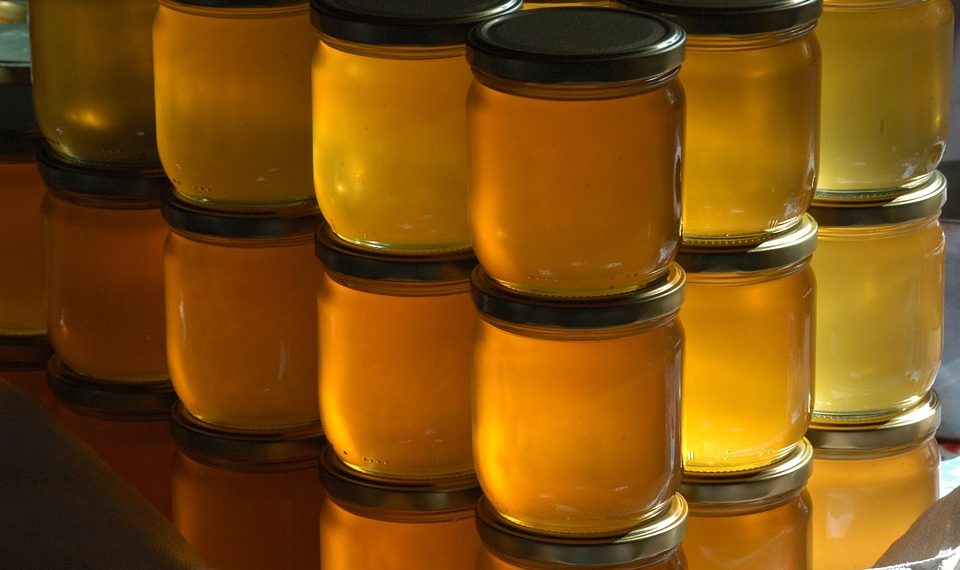5 Benefits of Manuka Honey for Gut Health You Need to Know
Midday slump meets your favorite mug. As you take a sip of tea, thoughts drift to snack options, maybe a piece of chocolate or an energy bar. But what if, instead, you reached for a spoonful of Manuka honey? Beyond its sweet allure, this unique honey offers intriguing benefits, particularly for gut health.
Many people are increasingly aware of how important gut health is to overall well-being. From the gut-brain connection to the role of gut bacteria in digestion and immunity, the gut is a vital player in our health narrative. A growing body of research points to Manuka honey as a potential ally in nurturing this essential system. Let’s explore five evidence-based benefits of Manuka honey for gut health that you might find compelling.
Contents
1. Antimicrobial Properties
One of the most celebrated characteristics of Manuka honey is its antimicrobial ability. Derived from the nectar of the Manuka tree (Leptospermum scoparium) native to New Zealand, it contains a unique compound called methylglyoxal (MGO).
MGO sets Manuka honey apart from regular honey, giving it a strong potency against various pathogens. A study published in the European Journal of Clinical Microbiology & Infectious Diseases in 2008 demonstrated that Manuka honey effectively inhibits the growth of harmful bacteria like Escherichia coli and Staphylococcus aureus [1].
This antimicrobial property can play a crucial role in gut health by:
- Helping to prevent gut infections that can disrupt digestion.
- Supporting the recovery from conditions like small intestinal bacterial overgrowth (SIBO) and various foodborne illnesses.
Though promising, it’s essential to use Manuka honey judiciously. Some individuals may have allergies or sensitivities, and those with specific medical conditions should consult healthcare professionals before introducing it into their diets.
2. Prebiotic Effects
As the gut microbiome becomes a focal point in dietary discussions, understanding prebiotics is crucial. Prebiotics are substances that nourish beneficial gut bacteria. Research indicates that Manuka honey may have prebiotic qualities.
A study in Frontiers in Microbiology in 2017 found that Manuka honey enhances the growth of beneficial bacteria like Lactobacillus and Bifidobacterium. These bacteria are essential for gut health as they aid in digestion, boost the immune system, and help prevent gastrointestinal diseases [2].
As you incorporate Manuka honey into your diet, think of it as a boost for the good bacteria already living in your gut. However, it’s important to remember that moderation is key; consuming excessive sugar, even from honey, can lead to unwanted weight gain or blood sugar spikes.
3. Anti-Inflammatory Effects
Chronic inflammation in the gut can manifest in several ways, leading to digestive issues and disorders such as irritable bowel syndrome (IBS) or inflammatory bowel disease (IBD). Emerging research suggests that Manuka honey may possess anti-inflammatory properties, potentially alleviating some of these conditions.
A study published in Molecules in 2019 highlighted the anti-inflammatory effects of honey, examining how it can reduce markers of inflammation in gastrointestinal cells [3]. These properties may help in managing conditions where inflammation plays a significant role.
When choosing to add Manuka honey to your diet for its anti-inflammatory benefits, remember that individual responses can vary. It can complement a balanced diet rich in fruits, vegetables, and omega-3 fatty acids, which are also known for their anti-inflammatory benefits.
4. Skin Health and Gut Connection
You might not associate skin health with gut health at first glance, but there’s a fascinating link between the two. Imbalances in gut bacteria can lead to skin issues, including acne or eczema. Manuka honey’s use is not just limited to consumption but extends to topical applications.
A study published in the Journal of Medicinal Food in 2013 found that applying Manuka honey can assist in wound healing, highlighting its ability to reduce inflammation and promote tissue regeneration [4]. Using Manuka honey on your skin might not directly improve gut health, but it can help mitigate outward signs of inflammation potentially stemming from gut imbalances.
When applying Manuka honey topically, ensure it’s of high quality and safe for your skin type.
5. A Natural Sweetener with Lower Glycemic Impact
For those looking to manage their blood sugar levels, incorporating natural sweeteners is often a preferred choice. Manuka honey has a relatively lower glycemic index than regular sugar, meaning it doesn’t cause a rapid spike in blood sugar levels.
According to a study in the Journal of Diabetes Research in 2018, consuming honey in moderation can have a more favorable effect on blood glucose compared to other sweeteners [5]. This characteristic is beneficial for gut health as it may help regulate the bacteria balance, which can be affected by sugar spikes and crashes.
While it can be a more suitable option, it should still be used sparingly. Being mindful of your overall sugar intake supports better gut health and overall well-being.
FAQs
1. How do I choose the best Manuka honey?
When purchasing Manuka honey, look for a Unique Manuka Factor (UMF) rating of 10 or higher. The UMF rating ensures the honey has adequate levels of MGO, DHA, and leptosperin which contribute to its health benefits.
2. Can Manuka honey replace medication for gut issues?
While Manuka honey may offer supportive benefits, it should not replace any prescribed medication for gut health issues. Always consult a healthcare professional for proper diagnosis and treatment options.
3. How much Manuka honey is safe to consume daily?
Generally, one to two tablespoons per day is a reasonable amount for most people. However, individuals with specific health concerns, including diabetes, should consult their healthcare provider for personalized advice.
4. Are there side effects to consuming Manuka honey?
Some individuals may experience allergic reactions, digestive upset, or fluctuations in blood sugar levels. It’s always best to introduce new foods gradually and observe how your body responds.
Conclusion
Thinking of adding a spoonful of Manuka honey to your day? The potential benefits for gut health are intriguing—from its antimicrobial properties to its prebiotic effects and anti-inflammatory potential. However, like any food, it’s essential to consume it mindfully. Manuka honey can be a delightful addition to your diet, complementing a balanced intake of nutrients and supporting your gut health journey.
Whether taking a soothing teaspoon in your tea or using it topically, this unique honey stands at the crossroads of tradition and emerging research. By integrating it thoughtfully into your lifestyle, you could harness not just its sweetness, but its possible contributions to your overall health.
References
-
Adams, C. J., & Boult, C. H. (2008). Bioactivity of honey from New Zealand’s Manuka tree. European Journal of Clinical Microbiology & Infectious Diseases. URL: https://www.springer.com/journal/10096
-
Rycroft, C. E., et al. (2017). The prebiotic effect of Manuka honey on beneficial gut bacteria. Frontiers in Microbiology. URL: https://www.frontiersin.org/journals/microbiology
-
Almasaudi, S. B., et al. (2019). Antioxidant and anti-inflammatory properties of honey: Implications for clinical applications. Molecules. URL: https://www.mdpi.com/journal/molecules
-
Kwakman, P. H., & Zaat, S. A. (2013). Antibacterial and wound healing properties of honey: A review. Journal of Medicinal Food. URL: https://www.liebertpub.com/journal/jmf
-
Ferraretto, A., et al. (2018). The effects of honey on blood glucose levels: A systematic review. Journal of Diabetes Research. URL: https://www.hindawi.com/journals/jdr/
Get Your FREE Natural Health Guide!
Subscribe now and receive our exclusive ebook packed with natural health tips, practical wellness advice, and easy lifestyle changes — delivered straight to your inbox.














